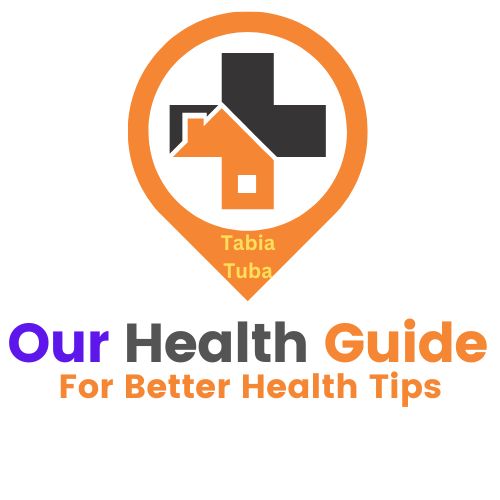Vitamins for Eye Health Over 50 & Above
Vitamins for Eye Health Over 50, As we age maintaining our health becomes increasingly important, especially when it comes to our eyes. Vision problems are common in individuals over 50, making it important to understand the role of vitamins and nutrients in supporting eye health. This article will explore the essential vitamins for eye health for those aged 50 and above, discuss common age-related eye conditions, and offer tips on how to incorporate these nutrients into your diet.
The Importance of Eye Health
Vitamins for Eye Health Over 50 years, Our eyes are vital for everyday activities, yet they are often overlooked until problems arise. Conditions such as cataracts, age-related macular degeneration (AMD), and glaucoma become more prevalent with age, highlighting the need for preventative measures. While regular eye exams are essential, diet plays a significant role in maintaining vision. Certain vitamins and nutrients can help combat oxidative stress, inflammation, and other factors that contribute to eye deterioration.
Key Vitamins for Eye Health Over 50
-
Vitamin A
Vitamin A is fundamental for good vision, particularly in low-light conditions. It helps produce a pigment called rhodopsin, which is crucial for night vision. Moreover, it supports the cornea, the outer surface of the eye. Its most important vitamins for Eye Health Over 50 Years people.
Sources: Carrots, sweet potatoes, spinach, and other leafy greens are rich in beta-carotene, a precursor to vitamin A. Additionally, animal sources like liver and dairy products contain retinol, the active form of vitamin A.
-
Vitamin C
Vitamin C is a powerful antioxidant that protects the eyes from damage caused by free radicals. It plays a role in maintaining the health of blood vessels in the eyes and may lower the risk of developing cataracts and AMD. Its crucial vitamins for Eye Health Over 50 Years people.
Sources: Citrus fruits, strawberries, bell peppers, broccoli, and Brussels sprouts are excellent sources of vitamin C
-
Vitamin E
Another potent antioxidant, vitamin E helps protect the cells in the eyes from oxidative damage. Studies suggest that vitamin E may help reduce the risk of cataracts and slow the progression of AMD.
Sources: Nuts, seeds, and vegetable oils (such as sunflower and safflower oil) are rich in vitamin E.
-
Lutein and Zeaxanthin
Lutein and zeaxanthin are carotenoids found in high concentrations in the retina. They filter harmful blue light and help protect the eyes from oxidative damage. Research indicates that a higher intake of these nutrients can reduce the risk of cataracts and AMD. Its major important Vitamins for Eye Health Over 50
Sources: Green leafy vegetables (like kale and spinach), corn, and eggs are great sources of lutein and zeaxanthin.
-
Omega-3 Fatty Acids
Omega-3 fatty acids, particularly DHA and EPA, are crucial for maintaining eye health. They help reduce inflammation and may lower the risk of dry eyes and AMD. Its most important vitamin for Eye Health Over 50 Years people. Its most important vitamins for Eye Health Over 50 Years people.
Sources: Fatty fish (such as salmon, mackerel, and sardines), flaxseeds, chia seeds, and walnuts are excellent sources of omega-3s.
Common Age-Related Eye Conditions
Understanding the vitamins and nutrients that support eye health is essential, especially when considering common conditions that affect those over 50.
Cataracts
Cataracts occur when the lens of the eye becomes cloudy, leading to blurred vision. Age is a significant risk factor, and studies have shown that adequate intake of antioxidants like vitamins C and E can help reduce the risk of cataracts.
Age-Related Macular Degeneration (AMD)
AMD affects the macula, the part of the retina responsible for sharp vision. It is a leading cause of vision loss in older adults. Nutrients like lutein, zeaxanthin, vitamin C, and omega-3 fatty acids have been linked to a lower risk of AMD.
Dry Eye Syndrome
As we age, the tear glands may produce fewer tears, leading to dry eyes. Omega-3 fatty acids are known to support tear production and may alleviate symptoms of dry eyes.
Glaucoma
Glaucoma is characterized by increased pressure in the eye, which can damage the optic nerve. While research is ongoing, some studies suggest that a diet rich in antioxidants may help lower the risk of glaucoma.
Incorporating Eye-Healthy Vitamins into Your Diet
Balanced Diet
The best way to ensure you’re getting the necessary vitamins for eye health is through a balanced diet. Aim for a variety of fruits, vegetables, whole grains, lean proteins, and healthy fats. Incorporate foods rich in vitamins A, C, E, lutein, zeaxanthin, and omega-3 fatty acids.
Supplements
While it’s always best to obtain nutrients from food, supplements can be a helpful addition if you struggle to get enough through diet alone. Consult with a healthcare provider before starting any new supplement regimen, as they can help you determine the right dosages and combinations based on your individual needs.
Hydration
Don’t forget the importance of hydration. Drinking enough water helps maintain the moisture balance in your eyes and supports overall health.
Regular Eye Exams
Regular eye exams are crucial for early detection of potential issues. Discuss any concerns with your eye doctor and ensure that you’re following their recommendations for maintaining optimal eye health.
Here are some common tests used to diagnose eye problems:
- Visual Acuity Test: Measures how well you can see at various distances, often using an eye chart.
- Refraction Test: Determines your exact prescription for glasses or contact lenses.
- Tonometry: Measures the pressure inside the eye to check for glaucoma.
- Dilated Eye Exam: Involves using drops to widen the pupil, allowing the doctor to examine the retina and optic nerve.
- Visual Field Test: Assesses your peripheral (side) vision.
- Fundus Photography: Takes detailed images of the retina and optic nerve.
- Optical Coherence Tomography (OCT): Provides cross-sectional images of the retina for detailed analysis.
- Color Vision Test: Evaluates your ability to see and differentiate colors.
Conclusion
As you age, paying attention to your eye health becomes increasingly vital. Incorporating the right vitamins and nutrients into your diet can help reduce the risk of age-related eye conditions and support overall vision. Focus on a balanced diet rich in vitamins A, C, E, lutein, zeaxanthin, and omega-3 fatty acids. Remember to stay hydrated, consider supplements if necessary, and maintain regular eye check-ups. Taking these proactive steps can lead to healthier eyes and better quality of life as you age.
Note: If you have specific concerns about your eyes, it’s best to consult with an eye care professional.

